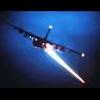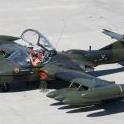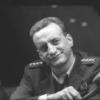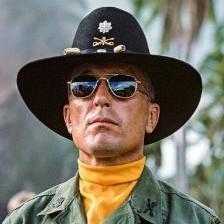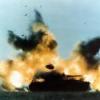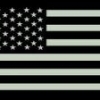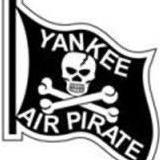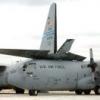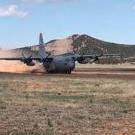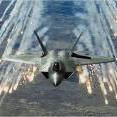Leaderboard
-
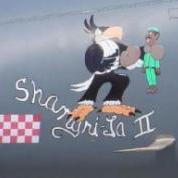
Hacker
Supreme User9Points2,076Posts -

matmacwc
Moderator6Points3,226Posts -

Crackity Jones
Registered User6Points9Posts -

HU&W
Supreme User5Points1,846Posts
Popular Content
Showing content with the highest reputation on 04/17/2017 in all areas
-
AFPAK Hands- Opportunity Beckons
6 pointsCurrent AFPAK Hand and while I don't regret volunteering, I cannot recommend this program. It is a great but backwards idea. Instead of taking experts, teaching language and culture and placing them in like billets in the field, the program teaches experts language and culture to fill whatever billet, irrespective of previous experience or validity as most organizations viewed Hands as a free body to fill a slot. This is especially true post 2014 but talking to several cohorts, it has always been applicable and if you look at other programs out here, they all say the same thing. The "real" advising billets are filled by contractors or other programs. For example there is a 11H pilot who instead of flying with the Mi-17s or MD-530s is in targeting. Mi-17s are advised by 6th SOS and MD-530s are advised by contractors. In fact contractors have better personnel management (to fulfill the contract), more continuity (typically stay longer than military tours) and no career penalty (no unchecked the boxes). Or several months ago there was a 12M weapons officer who instead of flying with the C-130s was in policing. C-130s of course are advised by multiple ARC squadrons. I can only think of a few people (voul and non-voul) who actually like their assignment, we do so little advising that it is more than a joke that the most useful language we use is English and I have yet to meet a Hand who honestly thinks this country is going to become better. In exchange all of the carrots mentioned are at best half truths. Many volunteer to have an advantage for FAO (RAS in the Air Force) or FSO (State). However the AF unlike every other service treats RAS as broadening, not a career field change, so you'll still be off track from your normal progression. FSO is obviously not guaranteed and means separating from the AF. Others volunteer for NDU/NIU (IDE in res) but you still need to be "picked up" off your boards for it to count, otherwise it is just another masters. Promotion rates depend on the service, community and board. The other services, especially the Army, use AFPAK Hands to get rid of their worst officers so that affects promotion rates. Within communities, specifically fliers, I can't imagine not flying for four years is an advantage although by the time most have met thier first or second gate they may have already topped out anyway. Boards are all different and you can't compare a O-6 board one year with an O-5 board from another. To be fair the program's performance is average and most of these problems are endemic to everything in Afghanistan. No mission. No personnel management. Even if we were doing out performing the rest of the country, Gen Petraeus himself said (or echoed) that reconstruction and advisement only works when there is a modicum of stability and good governance. I want the program to be better. It was a great idea, I enjoyed learning two languages and don't mind deploying for two years, but there are reasons there is a reported 50% 7-Day Op and 80% separation at the end of the program. SIGAR is finalizing a report on AFPAK Hands, likely recommending to at least change if not end the program, not that we ever concur with those recommendations. Rumor also has it that the Army, Navy and Marines each recommended ending it as well, with only the Air Force (which has the highest volunteer rates) dissenting, not that that will happen either. I'll leave you with excerpt from Foreign Policy https://foreignpolicy.com/2016/10/18/our-generals-failed-in-afghanistan/: "The premier example of this mismatch between what military leadership said we were doing, and what the bureaucracy was actually prioritizing, can be found in the story of the AfPak hands program. The program was launched by the Chairman of the Joint Chiefs, Admiral Mullen, and lauded as the key to shaping Afghanistan by creating a cohort of expert officers from across the services that would have the language skills and experience to build the kind of long-term relationships needed to build an effective Afghan security apparatus. While a priority for the Chairman, the effort was never embraced by the services. Despite the fanfare and stated importance of the program, mismanagement and mis-utilization were rampant as this specialized cadre encountered personnel systems unable to support non-traditional career paths. Caught between career managers that saw the program as a deviation from what officers “should” be doing – leading tactical units – and a deployment system that often led to random staff assignments instead of partnered roles with Afghan leaders, the program quickly became known as an assignment to be “survived” if not avoided altogether. A leaked briefing from the Army G-1, the service’s head personnel officer, to the Chief of Staff of the Army in 2014 confirmed that the AfPak Hands program had become a dead end for military careers. Officers who had participated in the program were being promoted at a fraction of the rate of those who had not. There are only two explanations for this outcome: Either the Army was sending sub-par officers to serve in the program, or officers were being punished for deviating from the traditional career track. Whichever it was, both explanations reveal that the effort to train and advise the Afghans was simply not a priority for the Army. Similar challenges faced those who served on Security Force Advise and Assist Teams. These teams, like the AfPak Hands program, were always ad hoc and widely considered assignments to avoid, as they did not align with traditional career paths. And in the end, the rigidity of the military’s 1950’s-era personnel system simply overwhelmed any desires to prioritize the counterinsurgency mission. Centrally managed and organized around rigid career development templates, this personnel system does a magnificent job of sustaining a peacetime military that is prepared to fight and win tactical battles at the onset of a conventional war, but is not built to go beyond placing square pegs in square holes."6 points
-
Changing/Switching airframes
6 pointsAmidst all the bleeding pussies, slighted egoes, and hurt feelings around this topic, don't forget that these are decisions based on qualifications that would likely translate to success in the IFF, FTU, and MQT training pipelines. It has nothing to do with ego. It is "gatekeeping", yes, because the AF doesn't have unlimited money to throw at people to see if they will make it -- they have to make educated and calculated decisions. Again, the Colonels and Generals who are kicking this stuff around saw the last iteration of the puppet show and how that turned out -- hell, some of them may have even been participants in it themselves. Since the results previously were marginal/acceptable at best with T-38 trained pilots, what is the logic some of you have behind thinking that opening it up to pilots with no fast jet single-pilot decisionmaking experience would deliver a better result? With a T-38 trained pilot, there is at least some sort of measured, documented performance that shows adaptability to that flying environment and theoretically the potential to succeed. With a T-1 trained pilot, there is no measured documented performance of those tasks...so which is the riskier bet? Again, it isn't about talent, it is about experience. As said, everyone realizes there are probably a number of T-1 trained MAF dudes who would excel when retrained as a pointy-noser using the existent T-38 requal/IFF/FTU/MQT syllabi, but the AF can't build policy based on what are likely statistical outliers.6 points
-
Changing/Switching airframes
4 pointsI agree with this. It just doesn't make good financial sense to take one guy and give him two trainings. You're literally robbing Peter to pay Paul. We're going to subtract one C-17 pilot and add one F-16 pilot (-1 + 1 = 0); net gain, zero. But yes, ultimately, if we are going to do that, they will need all the training that it takes to get someone to that spot - i.e. UPT phase 3 in T-38s plus IFF. Whether or not it is reasonable, I think Duck hits it with the following: The USAF needs to examine dollars and sense right now and also needs to understand why they aren't able to hang on to these year groups. It has little to do with the culture right now (IMO) and much more to do with the prevailing culture in which these year groups spent the previous 6-9 years growing up. People come up through a system and make decisions based on the sum total of decisions that they witnessed the AF making over their 10-yr ADSC. Few people wake up one morning in a vacuum and just pull the handle and jettison their careers. These are complex decisions people make by taking in the totality of personnel and other decisions that they see staffs making over the course of 1/2 a career. I'm not sure the Air Force realizes how important it is to maintain a consistent personnel system, deployment framework, promotion system, etc, for motivating people to stay for a career. The AF has been nothing but whiplash in those categories for far too long, and they are now reaping what they've sown. They will make the most money by fixing the culture, and leaving it fixed. This will ensure they have a hope of holding on to the majority of dudes who still have 5+ years of ADSC remaining. Sorry, I realize I wandered off topic there.4 points
-
Changing/Switching airframes
3 points
-
What should the Air Force be if it is so broken now?
This is complicated, and I don't claim to have the full picture, but here is what I think it really takes. TL;DR: Congress, the Joint Staff, and the USAF all have a role to play. All must take unprecedented steps to fix this, but the potential gain is beyond anything we've ever known. Congress: 1. Eliminate the vast majority of queep driven by federal law. 2. Bring pilot pay up to 75% of airline pilot pay with similar seniority/qualification. 3. BRAC Cannon yesterday, everywhere else tomorrow, and mass forces at superbases near major metro areas. Build a DFW-worth of runways to support and make the airspace Class B if needed. JCOS: 1. Inform COCOMs that their staff requirements will be combined (Navy flyer for USA/USAF/USMC/USN rated job, etc) or eliminated, to the scale or 50-75% or more. 2. Annihilate 179s as a thing. One fvcking day? Are you kidding me? Give people the credit for their service. This is one example, but i think the trend is clear: shorter deployments, where the service pays a premium to get people home to their families, and if not credits the time served, rather than allowing a cowardly bureaucrat to steal that credit. USAF: 1. Divorce rated promotions from non-rated. Separate boards, with separate quotas. To make a long story short: you can replace an MPF 0-3 with about 30 grand. To replace a (good) pilot is 100 times that amount. Time to recognize return on investment, kids. 2. Make the non-verbal signals clear: stop the anti-ops "you're all officers and equal" jihad. I won't rant about why. 3. Man the queep positions so that pilots/rated only do DOT, DOV, etc jobs aside from flying, aka those that require their expertise. 4. In Robin Olds' words: "If I can order a man to combat 24 hours a day, he can get paid 24 hours a day." I truly do not care if MSG folks have to work 12 hours shifts; they will support. If they quit, I do not care; I will replace them for the cost of a single aircrew TDY. Run the numbers and tell me I am wrong. However, I will also massively increase incentive flights and the like to connect Ops to MX to MSG and MDG. I would unite the factions so that they would SEE what their worth ethic empowers. 5. Inform COCOMs that their "rated requirements" will be manned at about the 10% level or lower. And see [JCOS] part. 6. Start researching how to finally quit the AEF and move to a better, more cohesive, more predictable model. Don't go full Army, because that is just retarded, but find a way for families to know that "this" deployment is just the one in 4 years, or whatever. 7. Most important: CSAF has to get out there, to every base, and every squadron bar, with nametags off and interview the pilots/CSOs/STS dudes with beer in hand and no entourage. This is the hardest part. He/She MUST establish credibility by allowing the rank and file to speak truth to power at the risk of being disrespectful. This will be a self-sustaining process; if the CSAF showed up here, paid my bar tab and got me a DD, I would whiteboard out the cycle of factors, at the FGO level, that are ensuring our mission failure - but only if I trusted him. 8. I'd overhaul Lackland to look more like an Army basic training unit than the clown show it is now. Kill the "but the queep reg says" buffoonery, and make 50% or more personal combat skills. I could go on on this point, but this is the essence of "expenditionary skills" and would motivate people that want to be part of a warfighting organization. Those who don't: quit. They will be replaced at their least expensive point. Folks, it's time to steal from the USMC model and challenge our people to be part of an elite combat unit, not an office camo welfare unit. And the take-away, folks: trust. This will require huge risks by leadership to change the paradigm, but if they can restore trust, then the rest will follow. Their biggest challenge now is that no one trusts the leadership, even if they make valid arguments and really want to change the culture.3 points
-
Changing/Switching airframes
2 pointsSo let me get this straight, you finished #1 in Phase 2 "by a mile" and did so well in Phase 3 you got FAIP'd? Sounds like you nailed it2 points
-
What should the Air Force be if it is so broken now?
When looking to consolidate real estate, I believe some of you may not be thinking through the implications of congested airspace. And increasing the size or amount of SUA is not a task that happens in a few months.2 points
-
Changing/Switching airframes
2 pointsMaybe I wasn't clear, my thoughts on FAIPS: And for you former FAIPS, don't get offended, you aren't there anymore.2 points
-
What should the Air Force be if it is so broken now?
I strongly agree with this one. As horribly as the new enlisted rating system (SCOD/Forced Distribution) was bungled during rollout, it's becoming a good system. I would like to see something very similar at the O level. 1. SCOD OPR's to coincide with PRF timelines. 2. Each signatory on the OPR gives two strats with a denominator equal to their total rating pool, a professional strat (#7/121 Captains) and a technical strat by AFSC (#21/25 11S3M). The whole pool gets stratted, and there would be a 200/200. Of course, the flight/cc's pool would be tiny, the sq/cc's would be much larger, and the group or wg/cc would be extremely large. 3. Allocate promotions by career field requirements and give the promotion board authority to the DTs.2 points
-
Changing/Switching airframes
2 points
-
Changing/Switching airframes
2 pointsI would have hoped you would have seen the dripping satire and you realized this was from an Air Force Leadership Logic perspective and in no way was I suggesting this was a "good idea"... Sent from my iPhone using Baseops Network Forums2 points
-
Changing/Switching airframes
2 points
-
Changing/Switching airframes
2 pointsI just want to know if the dudes that dropped the MOAB from the MC-130 were T-1 or T-38 grads.2 points
-
Changing/Switching airframes
2 pointsLol at the gatekeeper mentality here. I don't have a dog in this fight, but if it's important to the Air Force to have dudes cross flow from certain year groups, just start them in phase 3 of UPT. Proficiency advance from there as necessary. You can't pretend like only the "chosen few" with "the right stuff" in T-6's come track select time have a hope at making it. I know nobody is saying that exactly, but that's how it comes across to me as I've been lurking on these boards the past few years. 4 years after UPT as a C-17 or C-130 guy I don't see how it matters if you flew 38's in the past or not. We all know getting one in the first place is 50% skill, 50% luck, and 50% timing. I think just about every Saudi who has ever graduated UPT is proof that anyone can be taught to fly a fighter. It's just a matter of how long he syllabus should be for cross flow guys. Not that it matters because you all wish you were AFSOC anyways.2 points
-
Changing/Switching airframes
2 points
-
Changing/Switching airframes
2 pointsDude, this is the point where you should realize you don't know what you don't know and STFU. There's a difference between flying an airplane and employing it as a weapon. Sent from my SM-G920V using Tapatalk2 points
-
North Korea at it again
2 points2 points
- Blackhawk Down in Maryland
1 point- Changing/Switching airframes
1 point- AFPAK Hands- Opportunity Beckons
1 pointI know of 2 more C-130 WIC grads who were vectored to afpak hands and GTFO as soon as they could. Sent from my iPhone using Baseops Network Forums1 point- Changing/Switching airframes
1 pointNobody gives a shit about T-6's except in the UPT world. In fact, nobody gives a shit how you performed in T-38's after assignment night. Most guys get better with time, so if you make it through, continue to work your ass off and you'll have a blast flying fighters. I can say, with absolute certainty, that how you perform in T-6s has absolutely nothing to do with how you'll perform in a fighter squadron. As Hacker said, at least if a guy flew 38s and graduated, you know he has the potential. If a guy never flew 38s, it's unknown, regardless of if he "finished T6s #1 by a mile." FAIPmafia turned down 38s. Great. Thanks for doing us fighter guys a solid. But now he's bitching about flying 38s being a requirement, and is pretty sure he's going to be "aight"? YGBSM. Sent from my SM-G920V using Tapatalk1 point- Changing/Switching airframes
1 point- Changing/Switching airframes
1 point- AFPAK Hands- Opportunity Beckons
1 pointI'd love to hear a critique of this from the person Astan, I'd love to see a good discussion of this program that doesn't dismiss it out of hand. Here's my theory: In this business, one should never expect traditional success to flow from non-traditional career paths. 1. "Post Commitment Maj." (11-12 years of service) -- 16-17 years of service by the time you regain credibility, even if you went to IDE. Probably too late for DO. Definitely too late if you want to make O-6 early. Probably too late to make O-6 IPZ. O-7 for a guy at 16 years who isn't at least a sitting DO? Nearly impossible. 2. "Maj/Maj(s)" (9-10 years of service) -- You won't go to IDE without an exception to policy. Even then, you're coming back to flying at 14 years and need a full re-qual. You might be on time to make DO, but you'll definitely be an unknown quantity. Maybe it will work out for you, but you'd have been better off at an OG/CC-arranged staff job, remaining a known quantity in your community and continuing to build expertise related to your mission. If the goal is O-6 and you're not going to get sent to staff, AFPh at 9-10 years might be your best shot. I'd suggest you ask yourself why O-6 is this important and whether there's a reason you didn't do well enough to go the traditional route. If there's a specific adjustment you think you can make, your goal should be to find a 3-4 star willing to direct a WG/CC to put you in the gameplan. Be ready to lead for a boss who didn't choose you in a squadron that doesn't believe in you. Duly anointed you'll make O-6 and maybe even O-7. (Speaking as someone who has observed this happen a few times.) 3.a. "Capt" -- If you left at 8 years, your PRF went in while in Afghanistan. Most likely your records were ineligible for a DP except for at the MLR. Unless they were truly top 10%, your records met the board with a P and didn't get selected for IDE. 3.b. "Capt" -- If you left at 7, you're brand new to staff and the only rated captain as your PRF goes in. Good luck competing against non-rateds who manage significant parts of your general's portfolio. Best case, you're a dude with little tactical expertise and zero operational level knowledge... what is the general going to do with you? He doesn't know either, which is why you're doing nothing of consequence. You might not make O-5 unless you get back to flying and get a job working for the WG/CC. Even then, you need a full re-qual and don't know that much about the Wing's mission. See discussion of GO above. You'll spend your Maj years working your ass off to try and retire as an O-5. 3.c. "Capt" -- If you left at 6, you probably left your community before you were an IP. Your O-4 board assumed you were kicked out of flying and didn't give you an IDE slot. You may not even make major. Alternatively, you're now forced to do a full 4 year flying assignment to make gates beginning at the 10 year mark. You're ineligible to attend IDE as a result. Without in-res IDE, you're a "top 25%" guy at best and won't make the cut for DO. I'm sure there are great reasons to do AFPh. Promotion probably isn't one of them.1 point- Changing/Switching airframes
1 pointIt's all good. The toxicity is everywhere so I shouldn't take anything for granted. Someone, somewhere is thinking how to best screw people over "for the needs of the Air Force". Sent from my iPhone using Baseops Network Forums1 point- Changing/Switching airframes
1 pointOr C-12 trained Sent from my iPhone using Baseops Network Forums1 point- Changing/Switching airframes
1 pointBased on what you're saying in this thread, it sounds like you haven't learned any of the lessons that are intended to be conveyed during IEP.1 point- What should the Air Force be if it is so broken now?
That is THE problem, but from the opposite perspective. HHQ, all the way down to the wing level, simply have no concept of the time tax they levy with each good idea the fairy shits downhill. Oh, we need to crunch training squares sideways to fit this slide deck narrative? No worries, have the Ops Groups cull the data. CAF days? Of course! To many O&M days anyway. And the list goes on. YES: cut staffs and make leaders lead without worrying about straight quotation marks, or otherwise superfluous bs. Three execs including a Patch for one OG. That's when I knew the train had come off the rails.1 point- Changing/Switching airframes
1 pointWell in any case, there is a big difference. Fly along side different "fighter pilots" who come from different cultures and backgrounds, i.e. people who may have drastically different ideas about what "fighter pilot" means (it's not just flying a pointy nosed jet), and you'll start to grasp the difference I'm talking about. In a sentence, it's about your attitude towards yourself and own flying skills, rather than a self-aggrandizing projection you put out towards the world and other people. Many pilots from other cultures don't have the right attitude towards their J.O.B., and it reflects in their Air Force's capability. Our Air Force isn't immune to those attitudes, but in general they are far less prevalent. Further, the community has a way of making those types your "one and done" crowd - of course, this all exists within the constraints of "needs of the AF" and "luck and timing are everything." Hell, you can plunk down $2K and "fly a fighter" (https://aircombat.com/flight-programs/combat-flight-programs/advanced-air-combat-tactics-maneuvering/) - I don't think anyone would argue that experience doesn't make you a fighter pilot. Lol, I don't think anyone is 'gatekeeping' as you put it, and also agree that plenty of "heavy" dudes could hack it if given the opportunity. I think the main objection to your original post was that you seemed to imply that four years spent flying C-17s/130s would somehow translate to walking right into a fighter FTU...most people's objection was to that implication. Finally, the only real question here is if the USAF does need to pull from the MAF to staff fighter cockpits, why shouldn't they pull from those who have already spent six months flying something (T-38s) that builds the core skill set that translates directly to flying something else fast? You'll likely have greater success than if you roll the dice on those who haven't. It's a numbers game here, right? Of course there are exceptions, but if you are making decisions at an institutional level, you've got to draw the line somewhere. At the end of SUPT is probably the appropriate place to do that.1 point- What's wrong with the Air Force?
1 pointWow.. as a ABU flunkie I thought exactly the same thing. I'm not surprised the AF can't get Strategic Messaging right, I'm just surprised they've gotten it this wrong for this long. I mean, is there no one around (pilot/prior-E DGAF officer) to point out the stupid shit that gives people Forest Whitaker eye:1 point- Changing/Switching airframes
1 pointYou sure about that? faipmafiaofficial is a hell of troll...bravo dude.1 point- AFPAK Hands- Opportunity Beckons
1 pointLast I checked, most of us signed up to be part of the military; more specifically, the US Air Force, the god damn "Fly, Fight, WIN" set of air warriors who rain death down upon the enemies and oppressors of the democratic free world. This AFPAK hands sounds a LOT like some state department, political BS that most of us specifically did NOT sign up for. If we wanted to be politicians, we would have gone into politics. Instead we are the warriors (not used sarcastically), the "blunt objects", the "politics by other means" type. Take your double-speaking, snake oil salesman pitch elsewhere. You'll find no takers here.1 point- What should the Air Force be if it is so broken now?
Leaders stay out of the way in combat, it should not be that way! But I 100% agree with you.1 point- Changing/Switching airframes
1 pointSo I was a FAIP, have been through a fighter FTU, and am wrapping up five and a half years as a FTU instructor. Anybody with prior experience (95% of the time FAIPs but sometimes WSOs) typically excels in the 6-9 rides prior to their Inst/Qual check. After that it is a wash. Have FAIPs been DG? Absolutely, but so have the dudes who pin on 1st Lt during the b-course and with zero time in airplanes outside formal training. Not to mention, the fighter world puts a lot of weight into attitude. For most people we can get you there tactically with a lot of effort from the student but a student with good hands and a bad attitude is destined to be one fighter assignment and done. The culture shift is what I anticipate being the greatest challenge with crossflow and I'm not talking so to speak, elbow pointing, etc. I am talking about the single seat, your best is never good enough, every action in the jet is put under a microscope mindset that may be difficult to transition to after 1000+ hours of operating much differently. Like Hacker mentioned, the AF is simply hedging their bets for IFF success based on historical data.1 point- Changing/Switching airframes
1 pointDon't care, get over it. Not sure why you think FAIPs should be better. They walk into the B-course with the same amount of experience flying fighters as anyone else. Sent from my SM-G920V using Tapatalk1 point- Changing/Switching airframes
1 pointI have no doubt that there are very talented pilots who went through the T-1 track and went on to fly heavies, and who would likely excel if they crossflowed to a fast mover. But let's remember that the AF training pipeline has always been a game of numbers, and Big Blue has to select the pilots who have the highest likelihood of making through IFF and FTUs in the time directed in the syllabus. I'm sure there are plenty of UPT washouts who would have made great pilots if they'd just had a couple more rides, right? But, as we know, the syllabus directs when certain learning milestones will be achieved, and that is Gospel for the training pipeline. The brass who are making these decisions are old enough to remember the last fighter crossflow program in the late 90s and how generally sorta-slightly-below-average that turned out. Yes, we're talking about something different now than then (e.g., now the question is T-1 vs T-38 trained, but then the only folks eligible for crossflow were T-38 UPT-trained pilots), but because of this I think the lessons of the 90s crossflow are even more amplified now than then. I've posted about this before (several pages back in this very thread), but for those who didn't live through it, the fact is many crossflow pilots didn't end up performing as well as hoped at all stages of follow-on training (IFF. FTU, squadron MQT, etc). Some of them did great, of course (I know a couple that went on to perform well above average where I was in the F-15E community), but statistically they did "worse" (in terms of pipeline training washouts and issues in operational units). Remember, during this crossflow program it was only T-38-trained pilots who were eligible. Most of the dozen or so crossflow pilots that were my IFF/FTU classmates and later follow-on squadronmates were superb officers with fantastic officer performance records (and extremely good dudes to boot), but that didn't always continue into performance in the cockpit. It wasn't a talent issue with the crossflow pilots so much as it was an experience issue; one has to acknowledge, weather it is politically correct to or not, that there are significant cultural differences between the fighter community and other flying communities (although the bomber community is a somewhat close relative) that translate to differences in skills/airmanship in the pilots that come from those communities. What makes an aviator great in the MAF isn't the same thing that makes an aviator great in the CAF. On the most basic level, the crossflow pilots, for the most part, were not used to being single-seat decisionmakers at much higher speeds, and much higher Gs, while hand-flying significantly more aggressive/dynamic maneuvers. Many times the core airmanship just wasn't operating well at 400 knots and pilots were just behind the jet (sound judgment, just not fast enough); sometimes a thousand hours on autopilot in the flight levels did not translate to having hands good enough for even basic admin formation work, much less more complex BFM or surface attack. This isn't unique to the crossflow folks, though; this is the same thing seen many times with ANG/Reserve fighter units that hire non-fighter guys and send them through IFF and fighter FTUs. There was a big wave of those guys back in the 2003-2005 timeframe (mostly A-10 units at the time, but I don't remember why), and they had an unusually high washout rate, too, with the guys who did superb being the exception rather than the rule. None the less, the end result was that there was higher attrition of the crossflow guys compared to straight pipeline students, and the fighter brass largely decided the crossflow program wasn't that much of a benefit. Again, not that the crossflow pilots were idiots or anything (in fact, quite the opposite -- most of them had impressive OPRs/jobs/awards, seemed to have been superb pilots in their previous lives, and were really great dudes), but their previous flying time had given them habits and airmanship that did not dovetail into success in fighters. And all of this was with pilots who had 100-ish hours of training as a fast jet single-seat flyer and decisionmaker before going to a multi-pilot airplane. Now, how do you think that learning curve is going to be with a dude whose only single-seat judgment and decisionmaking was Phase II in T-6s however many years prior?1 point- AFPAK Hands- Opportunity Beckons
1 pointNo one. Which is why Chang is fishing for suckers. "You'll make O-6" and "you'll make General" and "it's a career rocket" are the corporate motivators. I'd rather drop MOABs, which seems a bit more effective at killin' bad guys. Besides, anyone can sell their soul and make O-6, but only a few can say they dropped the biggest fuckin bomb we have... well I'd like to see a bunch more that can say they dropped it. Out1 point- AFPAK Hands- Opportunity Beckons
1 point- What's wrong with the Air Force?
1 pointAppealing to pilots while wearing ABUs, sounds petty but when you're facing a national crisis every piece of the message matters.1 point- What should the Air Force be if it is so broken now?
Well, leaner and meaner, perhaps. More powerful is up for debate. Unfortunately, our leanness is the result of people like Chang who decided we should pay pilots a bonus to get out, force TERA on a bunch of others, and pass over a bunch of aviators...only to be shocked two years later when the Air Force has a pilot shortage. The meanness is the result of those left behind, who watched the Air Force so casually discard their brethren, then have the gall to beg them to stay by appealing to their patriotism. If you're a young guy, thinking about the Air Force, I'll say it's been a fun ride. But don't be fooled by the phrase "The people here are not your friends and truly don't care about you & your family." Because AFPC REALLY doesn't care about you and your family. They will send you to Afghanistan or Iraq for a year to build PowerPoint slides. They will non-vol you into a job you don't want, while the guy who works at the next desk over is begging for that job, but "the timing is wrong". They will kick you out if the budget monkeys say so. They will beg you to come back when the spreadsheets turn red instead of green. So, Chang's a little right (shocking, I know)...the people here aren't your friends, and they probably don't care about you, your friends, or your family. But don't think that the Air Force does either. By all means, follow your dream, go fly fighters or bombers or cargo aircraft. Invest that flight pay wisely. But do it with open eyes. Understand why the people currently doing the job you want so desperately are bailing out as soon as the commitment is over. Understand why people get out at year 18 rather than get the full retirement. Think really, really hard about what you're signing up for. I've had a great time in the Air Force, and I'm in the minority because I'm not really looking to leave in the near future. But I see it every day. Guys who get out the day they're eligible to. Guys who laugh out loud when they get the bonus email. Hell, my base has three O-6 selects that are retiring this month rather than pin on Colonel. So join, have fun, hang out with the bros, kick ass in the jet...but have an exit strategy that's more robust than "I'll retire at 20".1 point- AFPAK Hands- Opportunity Beckons
1 pointI forwarded the AFPAK Hands email directly to Gen Everhart's "Why are we losing so many pilots" inbox.1 point- What should the Air Force be if it is so broken now?
I'm sorry, if a harmless joke such as a dildo offends you, you have no business being in the military. What a bunch of sissies. When I was serving our old OG and his wife a beer at the squadron BAR when I was a LT, the wife noticed our bottle opener was attached to a pair of kangaroo balls. She thought it was hilarious and kept opening other people's bottles with the balls. No one complained. Then the purge of 2013 happened and they thing vanished :(. I sent my copilots on a spirit mission to find it since rumor was it was in one of the 0-5/0-6s house. No luck. You don't need dildos to have a good time in the Air Force but it's little harmless fun like that that can make it bearable sometimes.1 point- What should the Air Force be if it is so broken now?
"John Coffee" is no ones standard...other than your mom. The complaint was due to unnecessary escalation. When it's larger than expected...start slow, they'll warm up to the destruction... If that had gone in the right bags, he'd still be there..it didn't and ended up on the shirt's desk. To call the written note laid under a dildo a "complaint" is being slightly misused...the aftermath that ensued is pure "what's wrong with the air farce". Bendy Sent from my iPhone using Baseops Network Forums1 point- AFPAK Hands- Opportunity Beckons
1 point9/10 trolling. Would give full marks except part of the duty of a troll is to remain clandestine for maximum impact. This one was a little too obvious. Still not too shabby, though. Crazy to think that such a great deal which is advertised direct to the inbox of tens of thousands of people who are eligible, and an assload more who aren't, still needs cheerleading in a forum like this to get takers. You'd think they'd be busting down the door to be first for consideration. Odd.1 point- AFPAK Hands- Opportunity Beckons
1 pointThis pretty much confirmed my suspicion that GC is a troll who just likes to get everyone here spun up about stuff.1 point- What should the Air Force be if it is so broken now?
By insisting that everyone should compete in promotions, we too often revert to metrics that apply across AFSCs...Which ends up meaning you are not actually rated on your primary duty. That needs to end. See the AFBlues cartoon about Luke Skywalker's OPR...1 point- Track Selects and Assignment Nights
Timing and luck are 90% of everything in the AF. This is a solid part of that. Sent from my iPhone using Baseops Network Forums1 point- US drops largest non-nuclear bomb (MOAB) in Afghanistan
hey man take this however you want IDGAF, but in most of your posts you come across as a huge ass hole1 point- Just remembered "near syncope" incident, already in DEP
My answer is no longer valid, since a doctor has recommended to declare the event.1 point- U.S. Launched Tomahawk Strikes on Syria
- Blackhawk Down in Maryland


